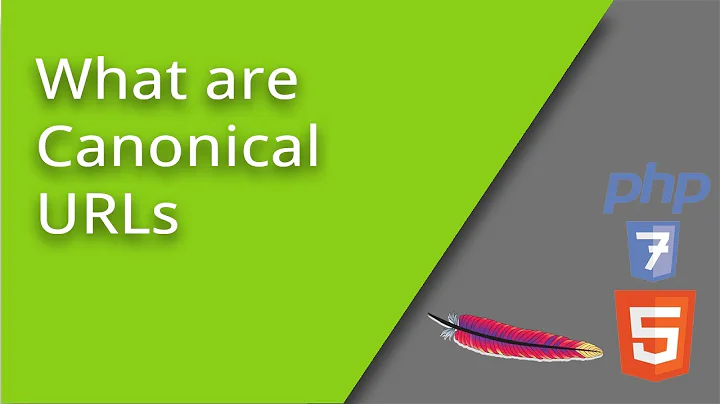What is the purpose of leading slash in HTML URLs?
Solution 1
It's important to start a URL with a / so that the intended URL is returned instead of its parent or child.
Let's say if your browsing /cream-cakes/ then you have a link on the page that has blah.html without the forward slash it is going to attempt to visit page /cream-cakes/blah.html while with the forward slash it'll assume you mean the top level which will be domain.com/blah.html.
Generally, it's best to always use / in my experience as its more friendly when you change the structure of your site, though there is no right or wrong assuming that the intended page gets returned.
Solution 2
Does the leading '/' mean the path is starting from the site root?
Technically this is referenced in section 4.2 of RFC 3986 as an "absolute-path reference":
A relative reference that begins with a single slash character is termed an absolute-path reference.
It ensures the path is absolute to the root directory and not the current directory (termed a "relative-path" reference). See this for an expanded discussion on that.
Solution 3
That's a root-relative link. It's a relative link (somewhat akin to ../) but it begins at the root of the site. If a page three levels deep on the site begins a link with the forward slash, the remainder of the path will be relative to the root of the site.
A benefit to this form of pathing is fewer characters in the markup:
http://example.com/page.html
vs
/page.html
Another advantage is portability across domain changes. If example.com content is moved to example.org, for example, root-relative links will still work, assuming the same directory naming/layout is used. Especially useful if developing pages locally, then uploading to the web.
As with other types of pathing - relative (../) and absolute (http://...) this is still subject to updating links when files or directories are renamed or moved.
Related videos on Youtube
Jérôme Verstrynge
You can contact me via my LinkedIn profile.
Updated on September 18, 2022Comments
-
 Jérôme Verstrynge over 1 year
Jérôme Verstrynge over 1 yearI have noticed that some blogs posts have links using a value starting with
/in thehref.For example:
<a href="/somedir/somepage.html">My Page</a>Does the leading
/mean the path is starting from the site root?In other words, if the site URL is
www.mysite.com, the effectivehrefvalue iswww.mysite.com/somedir/somepage.html?Is this a convention accepted in all browsers?
-
Hawken over 10 yearsYou may also find a double slash url,
//somedomain.com/somedir/in some links, which uses the same protocol used for the current page, stackoverflow.com/questions/4978235/… stackoverflow.com/questions/4831741/…
-
-
 Stephen Ostermiller over 10 yearsCan you address the browser support for this type of link?
Stephen Ostermiller over 10 yearsCan you address the browser support for this type of link? -
DisgruntledGoat over 10 years@Stephen every browser ever made since at least 1998.
-
joosthoek over 10 years@DisgruntledGoat: Probably way earlier than that. In fact, I'd go on a limb and just say "every browser ever"; that syntax has been part of the URL standard from the very beginning.
-
Ian Dunn almost 4 yearsIt can also break links during domain changes. For example, if
blog.example.orgmoves toexample.org/blog/. If The links had beenhttps://blog.example.org/foo, they'd be easy to redirect, but/foolinks introduce a lot more complexity to redirect.




